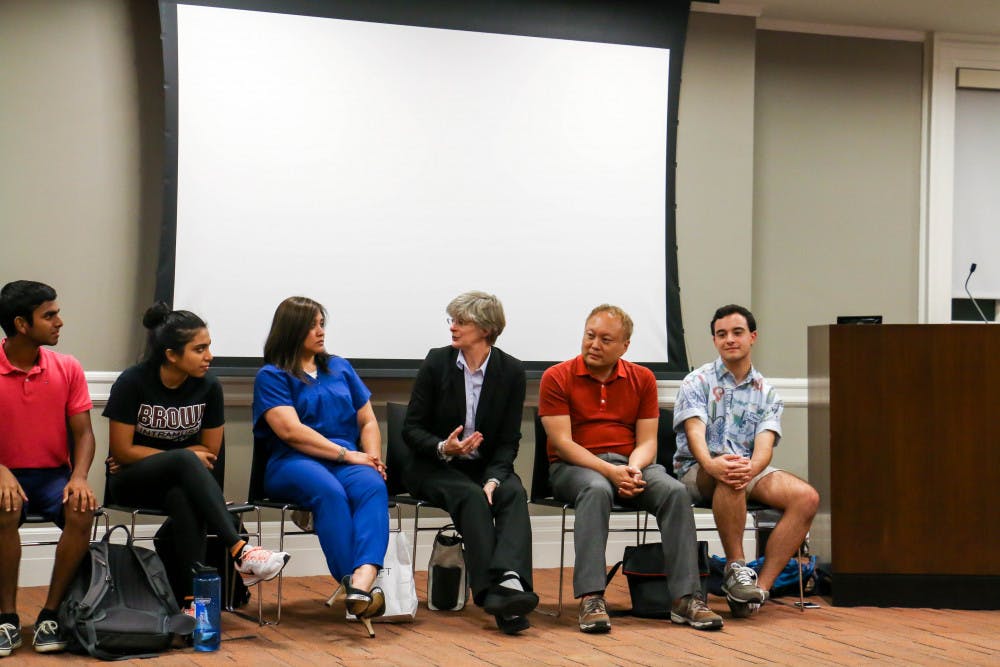The Undergraduate Council of Students closed its general body meeting “to the public and the press” Wednesday night, said UCS President Viet Nguyen ’17. “We wanted to provide a safe space for students to engage in difficult conversations without the media’s pressure there,” he added.
The meeting, which included a visit from Eric Estes, vice president for campus life and student services, Mary Grace Almandrez, assistant vice president and dean of students, and Marylou McMillan, assistant vice president for campus life, was focused on discussing issues — such as mental health and sexual assault — that the council hopes to address this year, Nguyen said.
“We didn’t want students to feel like what they would say or the questions that they would ask would be plastered on the newspaper,” Nguyen said. “We wanted to create sort of a safe space where students could learn without the public looking in because we want students to engage with these really hard conversations in a private setting.”
Estes described the part of the meeting he attended as “a casual meet and greet with most of the time taken up by intros and then a couple of questions,” in an email to The Herald.
Discussion of “the structure of the administration, the structure of UCS” and “the history of activism” was also on the agenda, Nguyen said.
“It’s not uncommon for bylaws of governing bodies to allow for executive sessions for matters considered sensitive or confidential,” wrote Brian Clark, director of news and editorial development, in an email to The Herald. “UCS has a set of bylaws to govern its operations, and its members directly manage meetings and other activities,” he added.
Under the council’s by-laws and code of operations, a two-thirds vote is required to close a meeting.
All returning members were allowed to vote, Nguyen said. About 30 members voted yea to close the meeting, with one nay and one abstaining.
Students are required to obtain 100 student signatures to join the council as a general body member, according to the UCS website. Regardless of whether they had received the 100 student signatures necessary to become a voting member, all students intending to join UCS were allowed to remain at the meeting following the vote to close the session.
Whether future meetings will be closed to the public and the press is “unclear,” Nguyen said, adding that a calendar outlining closed and open meetings will be released soon.
The move to close nearly an entire meeting — and the possibility that multiple meetings may be closed this semester — marks a clear shift in UCS’s approach to governance. A search through Herald archives and conversations with several regular attendees of UCS meetings over the last four years indicate that meetings closed for nearly their entire duration have been conducted very sparingly since at least fall 2012.
Transparency is a “huge priority” for UCS, Nguyen said. The council has been pursuing this goal through “community building and building relationships directly with students and student groups,” he added.
Nguyen has also made himself available to students over email and in person, he said.
“We wanted to sort of go directly to students,” Nguyen said. He added that he believes making closed meetings an option will increase student involvement in UCS decision-making.
“I think it encourages people to be more engaged knowing that there is a space where they can ask questions,” Nguyen said, adding, “Anyone can become a UCS member.”





